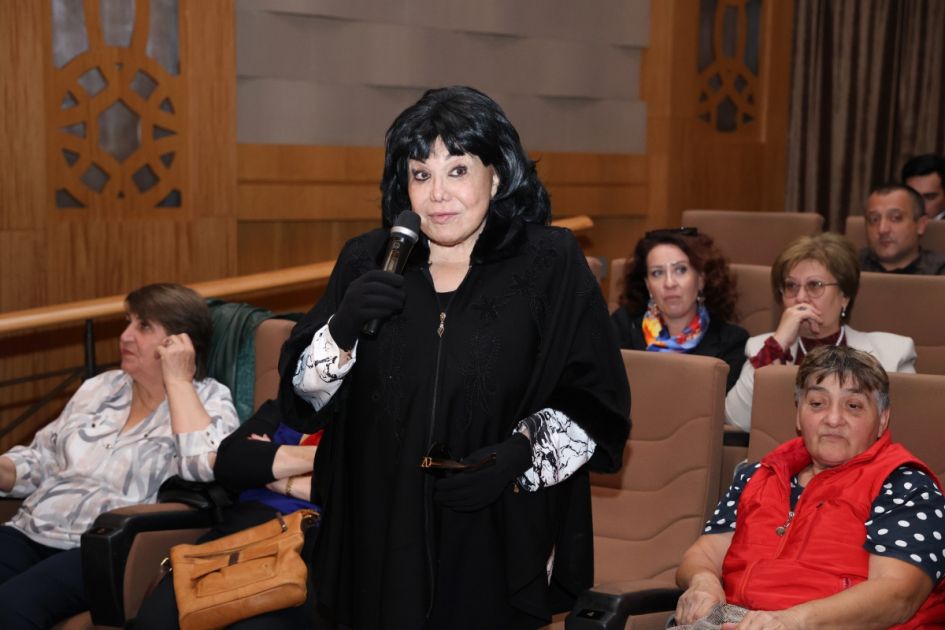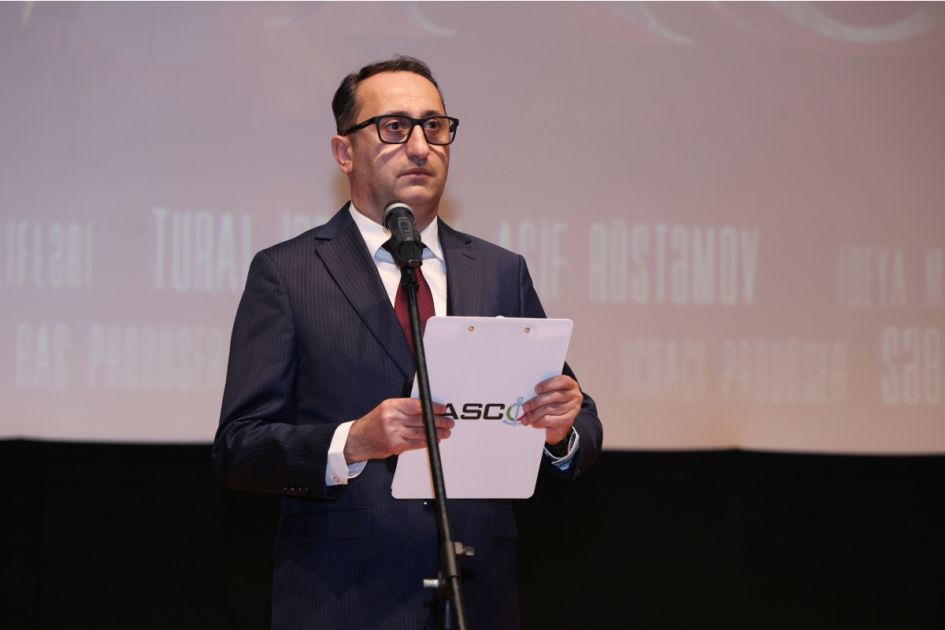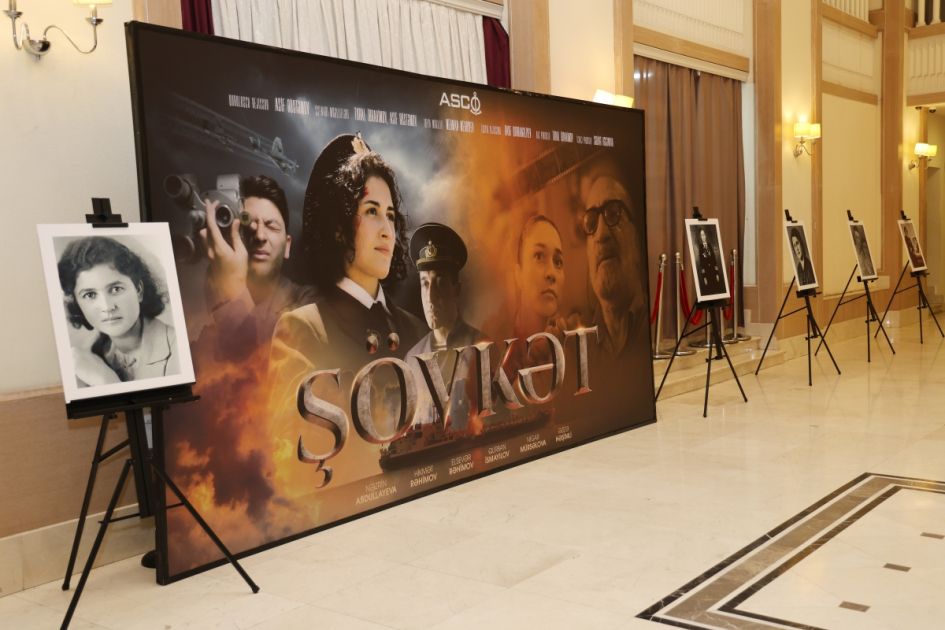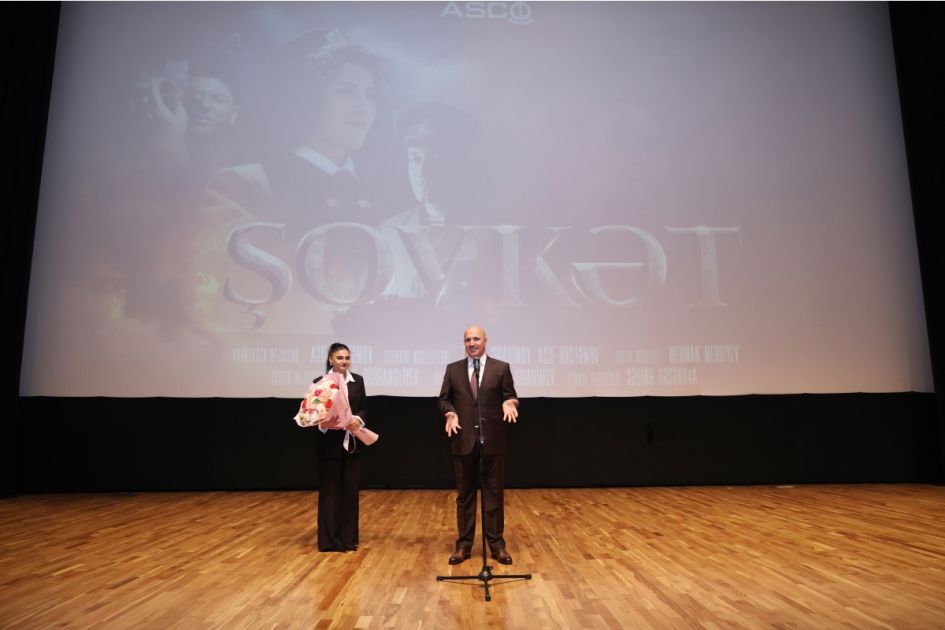ASCO presents film about country's first female ship captain [PHOTOS]
![ASCO presents film about country's first female ship captain [PHOTOS]](https://www.azernews.az/media/2025/10/28/egtrhyt6.jpg)
A feature film "Shovkat" dedicated to Azerbaijan's first female ship captain Shovkat Salimova has premiered at Nizami Cinema Centre, Azernews reports.
The cinema work was produced on the initiative of the Azerbaijan Caspian Shipping Company JSC (ASCO), a company under AZCON Holding.
The film premiere was attended by AZCON Holding management and staff, including ASCO, students of the Azerbaijan State Maritime Academy (ADMA) and Azerbaijan Maritime College (AMC), members of the public and cultural figures, journalists, as well as the film's creative team.
Chairman of ASCO's Board of Directors Rauf Valiyev addressed the event. In his speech, he pointed out that the film, produced drawing on the rich heritage of the 167-year history of shipping, holds special significance with its premiere on October 22. On this day in 2013, by a corresponding decree of President Ilham Aliyev, two historic and major fleets operating in the country were merged, forming the Azerbaijan Caspian Shipping Company JSC, which currently operates under the ASCO brand.
The Chairman emphasised that since its establishment, ASCO has prioritised enhancing the prestige of the maritime profession, and the "Shovkat" film is one of the projects realised to achieve this goal.
Rauf Valiyev also noted that Shovkat Salimova's life and work serve as a strong source of motivation for young women. He highlighted that the number of women working both onshore and onboard ASCO vessels, as well as studying at ADMA, is steadily increasing.
The Chairman then invited one of these women, Nurana Akbarova, a graduate of ADMA working as a sailor on the RoPax-type "Zarifa Aliyeva" ship, to the stage and congratulated her on continuing her career as an assistant captain.
At the event, a piece from the romance "Sular Qızı," performed in 1979 by People's Artist Flora Karimova and dedicated to the female captain, was played. After the performance, People's Artist Flora Karimova shared her memories of Shovkat Salimova.
The feature film was then screened. Following the screening, the film's creative team was invited to the stage and presented with a certificate of appreciation on behalf of ASCO.
More than 70 local and international specialists, as well as over 100 actors, participated in the production of the film. The role of Shovkat Salimova was played by the young actress Nazrin Abdullayeva. The cast also included People's Artist Gurban Ismayilov and actors Hikmet Rahimov, Elsever Rahimov, Nigar Murselova, among other well-known figures.
The idea for the feature film was conceived by Mehman Mehdiyev, head of ASCO's Public Relations Department, while the screenplay was written by Tural Ibrahimov, director of the Surakhani Ship Museum, and Asif Rustamov. The film's director was Asif Rustamov, cinematographer Rauf Gurbanaliyev, chief producer Tural Ibrahimov, and executive producer Sabina Hasanova.
During filming, extensive use was made of ASCO's fleet and various real locations.
Unique props were also created to reflect the spirit of the era.
Shovkat Salimova made history as the first female sea captain in Azerbaijan and the first Muslim woman to captain a ship in the entire Middle East. Her contributions to her country were invaluable- during the Great Patriotic War, she commanded vessels that transported military equipment, fuel, and ammunition to Stalingrad, and brought wounded soldiers back to Baku and Krasnovodsk.
Born into a large family as the eldest of ten children, Shovkat grew up in Baku in the household of an oil worker. Interestingly, the sea wasn't her first dream. At that time, even young men faced great difficulty entering maritime academies for women; it was almost unthinkable. But Shovkat defied convention, pushed forward with determination, and was eventually admitted as an exception to the navigation faculty, the training ground for future captains.
After graduation, she was assigned to the Black Sea Shipping Company. Yet once again, she faced scepticism. The personnel department doubted that a young woman could take on a captain’s responsibilities and instead appointed her as third mate aboard the tanker Sergo. When she arrived on the ship, the captain, too, refused to accept her. But Shovkat stood her ground and won. He had no choice but to let her aboard.
Thus began her real journey. For seven gruelling months, the tanker sailed across the open seas, and Shovkat proved her skill and resilience, ultimately earning praise from the very captain who had doubted her. Afterwards, she returned to the Caspian Sea and soon after, she became captain of large maritime vessels herself.
With the outbreak of World War II, many male sailors were sent to the front, and women stepped in to fill their roles. Shovkat began delivering vital cargo equipment, ammunition, and oil to the Soviet front near Stalingrad and transported the wounded back to Baku. These missions were perilous. On one occasion, her crew received word that twelve enemy tankers, divided into three groups, were heading toward them.
Shovkat acted swiftly, preparing her crew to meet the attack head-on. Nearly all the enemy ships were repelled. Only one managed to break through and dropped a deadly payload onto her ship, sparking a fire. The crew managed to extinguish it, a testament to her leadership in crisis.
Throughout the war, Shovkat Salimova performed numerous heroic deeds, earning her multiple honours: the medals For the Defence of the Caucasus, For the Victory over Germany, two Orders of the Red Star, and the Order of the Patriotic War, 2nd Class.
Her ships sailed the waters of the Mediterranean, Marmara, Aegean, and Red Seas, visiting dozens of ports across the globe. It was during one of these voyages that she met her future husband, a ship mechanic. They went on to build a happy life together.
When she stepped away from active sea duty, Shovkat turned her focus to science. She defended a dissertation, became a candidate of economic sciences, earned the title of associate professor, and was recognised as a merited economist of the republic. She also became a corresponding member of the Azerbaijan Academy of Sciences and remained active in public life.
Shovkat Salimova passed away in Baku in 1999. Through relentless perseverance and a deep love for her profession, she shattered stereotypes and proved that women are just as capable as men, even in the rough, demanding world of the sea.
Here we are to serve you with news right now. It does not cost much, but worth your attention.
Choose to support open, independent, quality journalism and subscribe on a monthly basis.
By subscribing to our online newspaper, you can have full digital access to all news, analysis, and much more.
You can also follow AzerNEWS on Twitter @AzerNewsAz or Facebook @AzerNewsNewspaper
Thank you!








